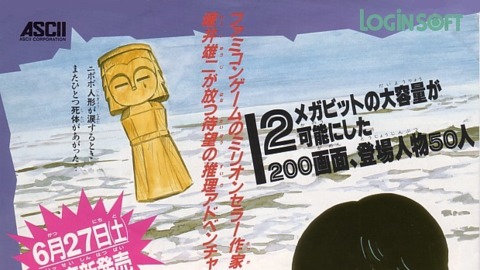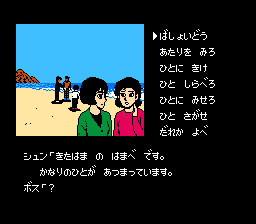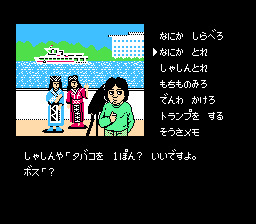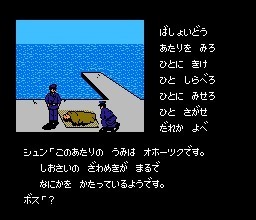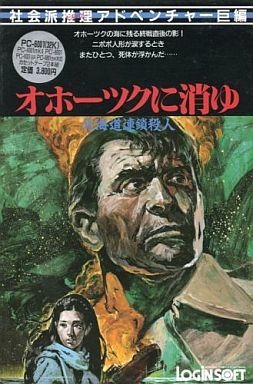Overview
Hokkaidou Rensa Satsujin: Ohotsuku ni Kiyu (北海道連鎖殺人 オホーツクに消ゆ), literally translates to: "Hokkaido Chain Murders: Okhotsk Vanishes", is an adventure game written and designed by Yuji Horii where the player controls an unnamed detective that is investigating a series of murders in the city of Hokkaido along with another young detective named Shunsuke Saruwatari. The title was the first adventure game by Yuji Horii to use a command selection system where the player could select different verbs by pressing their corresponding key instead of using a verb-noun text parser. This system was later implemented into the Famicom port of Yuji Horii's The Portopia Serial Murder Case, which would popularize the system. Yuji Horii would release his last adventure game in 1985 called Karuizawa Yuukai Annai ("Karuizawa Kidnapping Guide") which was retroactively included in a trilogy referred to as the Yuji Horii Mysteries series along with Hokkaidou Rensa Satsujin and Portopia Renzoku Satsujin Jiken.
The game was developed by Login Software and ASCII Entertainment initially published the title for the NEC PC-6001 and PC-88 on December 21, 1984. Ports would later be released for a number of Japanese computers and was remade for the Famicom in 1987 by Pax Softnica, which featured completely redone artwork designed by Kiyokazu Arai. Other re-imaginings of Hokkaidou Rensa Satsujin would also be released for the PC-98 in 1992 by Login Soft and eventually for mobile phones in 2001, which were published by Enix and later Square Enix. Yet another mobile remake was released in 2005 that contained an updated presentation. Decades later in 2024, a remake of the Famicom version of Hokkaidou Rensa Satsujin was released by G-Mode for the PC and Nintendo Switch called Namida no Nipopo Ningyou. This remake not only recreated Kiyokazu Arai's artwork but it also contained voice acting and new story content supervised by Yuji Horri.
Screenshot Comparison
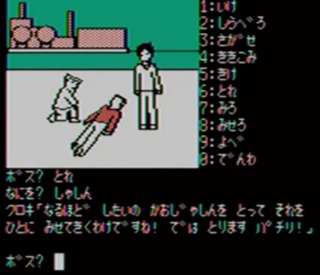 | 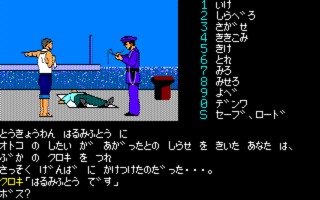 |
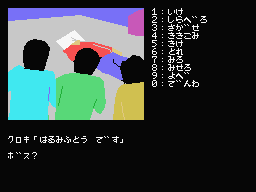 | 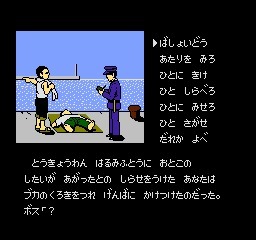 |
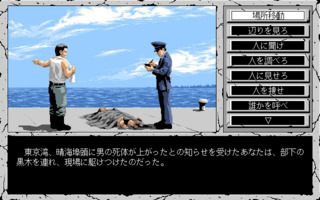 | 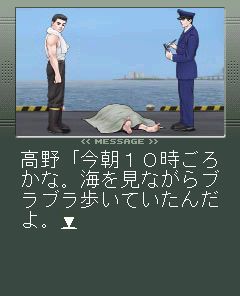 |

 MSX
MSX